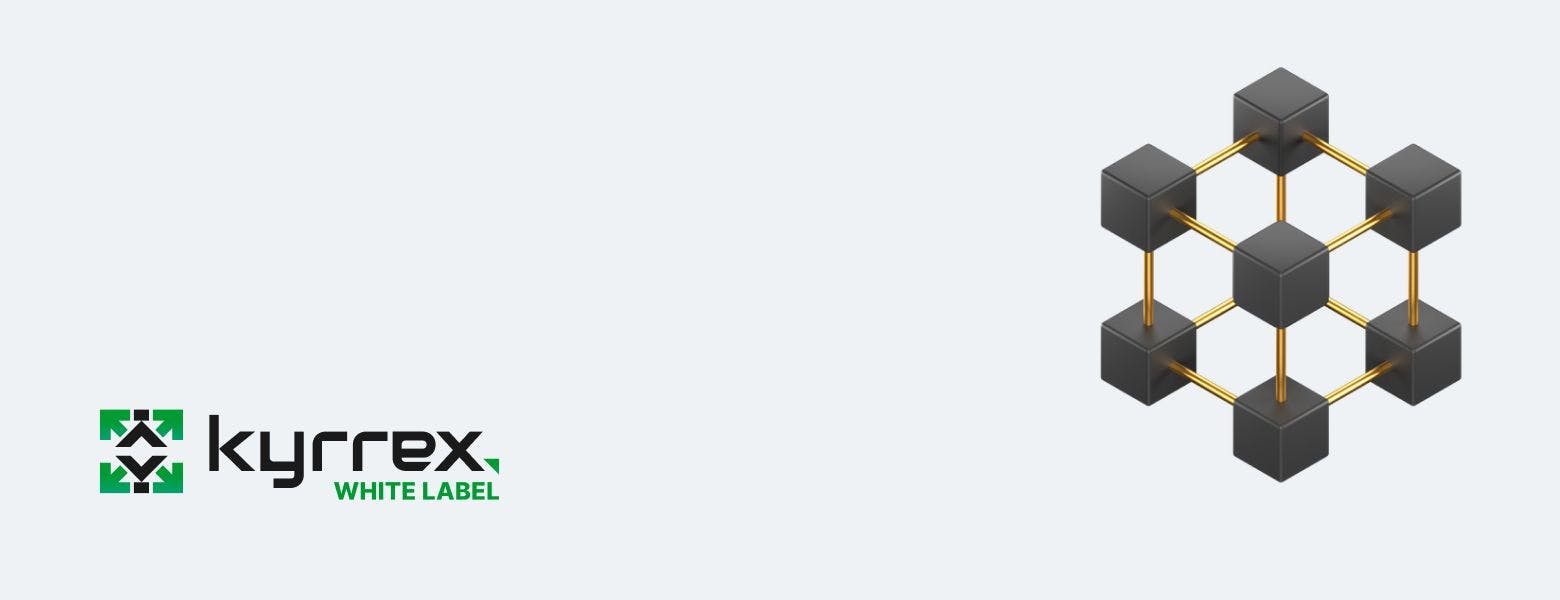
How Much Does It Cost to Create a Bitcoin Exchange?

Have you ever dreamt of creating your own Bitcoin exchange platform in the thriving cryptocurrency market? Imagine being at the forefront of the market, facilitating peer-to-peer cryptocurrency transactions while earning transaction fees. But how much does it cost to create a Bitcoin exchange? In this blog post, we will break down the various factors influencing the cost of creating a Bitcoin exchange, from development to marketing strategies.
Short Summary
- The cost of a Bitcoin exchange platform is determined by factors such as development costs, security measures, licensing and compliance requirements.
- Key components include trading engine, user interface/experience and wallet integration.
- Alternatives to custom development are white label solutions or clone scripts for quick launch at lower cost.
Determining the Cost of a Bitcoin Exchange Platform
The cost of creating a Bitcoin exchange depends on various factors, including:
- Development costs
- Security measures
- Licensing and compliance requirements
- Size of the development team
- Estimated growth rate of the global cryptocurrency market
All of these factors play a crucial role in determining the overall cost of crypto exchange platforms, as well as the individual cost of a crypto exchange platform.
The tools and technologies employed, such as traditional development approaches or cloud-based solutions, can also significantly impact the crypto exchange development cost.
Development Costs
The cryptocurrency exchange development cost can range from $50,000 to $150,000, depending on the complexity and features of the platform. This includes hiring a development team, implementing necessary features, and ensuring platform scalability.
Scalability is essential to guarantee that the platform is prepared to accommodate the volume of thousands of active users with millions of cryptocurrency transactions occurring daily.
Security Measures
Security measures are a critical aspect of any crypto exchange, as they protect user data and funds. Implementing robust security protocols, encryption, and two-factor authentication are essential factors in creating a secure and reliable exchange platform.
For example, Coinbase, one of the leading crypto exchanges, employs a comprehensive security system to safeguard customer funds. This includes:
- Storing 98% of funds offline
- Distributing bitcoins across multiple secure deposit boxes and vaults
- Disconnecting data from the internet
- Implementing a two-step verification process
Licensing and Compliance
Licensing and compliance costs depend on the jurisdiction and regulatory requirements for operating a cryptocurrency exchange business. It is essential to obtain a crypto exchange licence and implement anti-money laundering strategies and know-your-customer (KYC) procedures.
Moreover, it is advisable to seek legal counsel to guarantee that all licensing requirements are fulfilled.
Key Components of a Bitcoin Exchange
A successful Bitcoin exchange comprises key components such as a trading engine, user interface and experience, and wallet integration. These components are crucial for providing a seamless and user-friendly platform that can handle the vast number of cryptocurrency transactions on cryptocurrency exchanges and attract users to the exchange.
Trading Engine
The trading engine is the central component of a crypto trading platform, responsible for executing trading transactions on the cryptocurrency market, matching buy and sell orders, and ensuring the proper functioning of internal processes. With an efficient trading engine in place, users can execute transactions seamlessly and enjoy a smooth trading experience.
The trading engine is the backbone of the exchange platform, and its performance is critical for the exchange.
User Interface and Experience
A user-friendly interface and seamless user experience are crucial for attracting and retaining users on a Bitcoin exchange platform. The user interface and experience component encompasses:
- Graphical user interface
- Trading platform design
- Navigation
- Responsiveness
- User-friendliness
By offering a smooth and intuitive trading experience, users are more likely to have a positive experience with the platform and continue using it.
User experience is a key factor in the success of any Bitcoin exchange platform.
Wallet Integration
Wallet integration allows users to securely store, send, and receive digital currencies, including their own cryptocurrency, on the cryptocurrency exchange platform. This involves integrating cryptocurrency wallets into the exchange platform, thus enabling users to effectively manage their crypto assets and execute transactions on the blockchain network.
Wallet integration can be achieved either by developing a wallet from the ground up or integrating existing third-party wallets.
Blockchain Technology and Infrastructure
Building a blockchain technology infrastructure for a Bitcoin exchange can be accomplished using existing blockchain infrastructure solutions or custom development. Blockchain technology utilizes a decentralized network of computers that maintain a shared ledger of all Bitcoin transactions. This infrastructure guarantees the security, transparency, and immutability of the transactions on the exchange platform.
By leveraging the power of blockchain technology, Bitcoin exchanges can ensure that their customers’ funds are protected.
Existing Blockchain Solutions
Existing blockchain solutions offer cost-effective and time-saving options for building a Bitcoin exchange. Some popular existing blockchain solutions include:
- Ethereum
- Hyperledger
- EOS
- BitShares
- Chainlink
By utilizing these solutions, developers can save time and resources, allowing them to focus on other aspects of the platform, such as user interface and marketing strategies.
Custom Blockchain Development
Custom blockchain development allows for greater flexibility and customization, but may require more time and resources. The process of custom blockchain development involves:
- Defining the requirements of the exchange platform
- Designing the architecture of the blockchain solution
- Developing the code
- Testing the code
- Deploying the solution
Although custom blockchain development can be more costly than existing blockchain solutions, the potential benefits of increased security and scalability may outweigh the additional costs.
Marketing and User Acquisition Strategies
Marketing and user acquisition strategies are essential for driving traffic and increasing the user base on a Bitcoin exchange platform. Employing strategies such as:
- SEO
- Content marketing
- Social media marketing
- Email marketing
- Influencer marketing
- Referral programs
Can help attract users and grow the exchange.
Some successful examples of marketing and user acquisition strategies include Coinbase’s referral program and Binance’s influencer marketing campaign, which helped these companies gain millions of users.
Digital Marketing Campaigns
Digital marketing campaigns, including social media, content marketing, and paid advertising, can help attract users to the platform. For instance, the Dogecoin Foundation launched a successful digital marketing campaign titled “Dogecoin Millionaire” in 2021, resulting in increased awareness of Dogecoin and an expanded user base.
Similarly, Coinbase ran a successful campaign in 2020 named “Bitcoin for Beginners,” which was successful in educating users about Bitcoin and increasing its user base.
Referral and Affiliate Programs
Referral and affiliate programs incentivize existing users to promote the exchange and bring in new users. Users receive a commission or reward for referring new users to the exchange, generally a percentage of the trading fees paid by the new user.
Popular referral and affiliate programs for Bitcoin exchange platforms include:
- Binance affiliate program
- Coinbase affiliate program
- Coinmama affiliate program
- Changelly affiliate program
- CEX.IO affiliate program
Ongoing Operational Expenses
Ongoing operational expenses, such as platform maintenance, customer support, and updates and feature enhancements, are important considerations for the overall cost of running a Bitcoin exchange platform. Ensuring the smooth functioning of the platform and addressing any technical issues that may arise are essential for maintaining user satisfaction and trust in the platform.
It is important to consider the cost of these operational expenses when evaluating the total cost of running.
Platform Maintenance
Regular platform maintenance ensures smooth functioning and addresses any technical issues that may arise. Preventive and corrective maintenance are the two primary types of maintenance available. Preventive maintenance involves regularly inspecting the platform for potential issues and resolving them before they become a problem, while corrective maintenance involves rectifying any issues that emerge after the platform has been launched.
Costs associated with platform maintenance include hosting fees, server maintenance, and software updates.
Customer Support
Providing responsive customer support is crucial for maintaining user satisfaction and trust in the platform. Offering various customer support options can help address users’ questions and concerns, including:
- Live chat
- Phone
- Social media support
The costs associated with customer support include offering technical assistance, responding to customer inquiries, and resolving customer complaints.
Updates and Feature Enhancements
Regular updates and feature enhancements help keep the platform competitive and relevant in the ever-evolving cryptocurrency market. The costs for updates and feature enhancements include bug fixes, feature additions, and security patches.
Staying up-to-date with the latest features and improvements ensures that the platform remains secure and compliant with the most recent regulations.
Cost-Effective Alternatives: White Label Solutions and Clone Scripts

Cost-effective alternatives to building a Bitcoin exchange from scratch include white label solutions and clone scripts. These options offer pre-built, customizable exchange platforms that can be branded and launched quickly, saving time and resources compared to custom development.
White label solutions provide a ready-made platform that can be customized with a company’s branding.
White Label Solutions
White label solutions provide pre-built, customizable exchange platforms that can be easily branded and launched in a timely manner. They offer a cost-efficient approach to swiftly launching a Bitcoin exchange, as they are pre-constructed and require minimal customization.
The main disadvantage of white label solutions is that they are not as flexible as custom-built solutions, thus potentially unable to meet the user’s exact requirements and may not scale as rapidly as custom-built solutions.
Kyrrex White Label, however, offers the best of both worlds: a turnkey solution designed to cater to the fluctuating demands of different clients. Whether what’s required is a small OTC platform to serve local needs or a medium-sized crypto exchange intended to attract a more varied user base, Kyrrex White Label has something for everyone. The platform also offers unlimited liquidity to clients via its Liquidity Hub and experienced legal assistance in securing a cryptocurrency licence from regulators.
Clone Scripts
Clone scripts are pre-built exchange platforms modelled after popular exchanges, providing a cost-effective and time-efficient solution for establishing a Bitcoin exchange. The expense of utilizing clone scripts is contingent upon the features and customization needed, generally ranging from $5,000 to $20,000.
By choosing clone scripts, developers can focus on other aspects of the platform, such as user interface and marketing strategies.
Summary
In conclusion, the cost of creating a Bitcoin exchange depends on various factors, including development costs, security measures, licensing and compliance requirements, and ongoing operational expenses. Utilizing cost-effective alternatives like crypto white label solutions and clone scripts can save time and resources, allowing you to focus on other aspects of the platform, such as user interface and marketing strategies. By carefully considering all these factors and making informed decisions, you can build a successful Bitcoin exchange platform that meets the needs of your users and thrives in the ever-evolving cryptocurrency market.

























